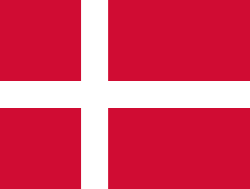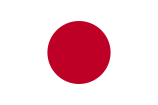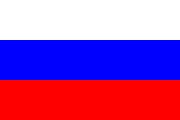Jyväskylä
 |
|
|
|
|
 |
|
| Province | Western Finland |
| Region | Central Finland |
| Sub-region | Jyväskylä |
| City manager | |
| Official languages | Finnish |
| Area - total - land |
ranked 383rd 136.9 km² 105.9 km² |
| Population - total (2008-04-30) - change - density |
ranked 9th 85,563 % 610/km² |
| Urbanisation | % |
| Unemployment rate | % |
| http://www.jkl.fi/ | |
Jyväskylä (pronounced [ˈjyvæsˌkylæ]) is a city and municipality located in Central Finland, 147 km from Tampere and 270 km from Helsinki, near the lakes Päijänne and Keitele. It is the center of the Jyväskylä Region. The site of many education-related firsts in Finland, Jyväskylä is known as a city of schools, the Athens of Finland, and is also famous for its many buildings designed by Alvar Aalto and for hosting Neste Oil Rally Finland, which is part of the World Rally Championship. The city is home of the annual Jyväskylä Arts Festival.
At the end of 2004, Jyväskylä had a population of 83,582, while the Region of Jyväskylä had 163,420 inhabitants. Jyväskylän maalaiskunta (the rural municipality of Jyväskylä), which has its town hall, graveyard and the beautiful church Taulumäen kirkko all conveniently located in central Jyväskylä, will be united with the city in 2009. After the unification there will be over 126 000 inhabitants in Jyväskylä.[1] The Jyväskylä region includes Jyväskylä, Jyväskylän maalaiskunta, Laukaa, Muurame and Toivakka.
As of 2006, the city mayor is Markku Andersson.
The unemployment rate in Jyväskylä is 13.8% (2008).
Contents |
Education
Jyväskylä is a traditional education city. A number of firsts in Finnish education have taken place in Jyväskylä:
- The first Finnish-speaking Lyceum (High School) (1858) (Lyceum being a Finnish equivalent of high school)
- The first Finnish-speaking teacher training college (1863)
- The first Finnish-speaking school for girls (1864)
- Finland's first Summer University (1914)
Due to this, among other things, the city earned the nickname Athens of Finland.
The teacher training college later evolved into the College of Education (1934) and further into the multidisciplinary University of Jyväskylä (1966).


The University of Jyväskylä is one of the most popular universities in Finland. Almost 16,000 students are enrolled to study for a Bachelor's or Master's degree, and the university also offers PhD programs in most of its subjects. Historically, the university has excelled in the study of education, but in the last few decades it has also gained respect in the sciences. It is the only university in Finland offering university-level education in sports, training sports teachers and coaches. Its IT program is the largest in the country in terms of attendance. Including school children, and the students in high schools, vocational schools, the university of applied sciences, known also for its IT program, and the university, the number of students and pupils in the city reaches 40,000, boosting Jyväskylä's reputation as a "student city".
History
Jyväskylä was founded on 22 March, 1837 by Czar Nicholas I of Russia and built essentially from scratch. The original town was built between Lake Jyväsjärvi (which is connected to Lake Päijänne) and the Jyväskylä ridge (Harju), and consisted of most of the current grid-style city centre. In the early 20th century, the town expanded several times. Most of today's Jyväskylä was built after the Continuation war, when refugees from Karelia and other parts of the country moved to the city and housing was badly needed. Today, Jyväskylä is growing by approx. 1,000 inhabitants/year. Interestingly, only about a third of the people living in Jyväskylä were born in Jyväskylä, which makes the city vibrant and culturally ever-changing.
Transport
Jyväskylä railway station is served by VR direct trains to Helsinki, Pieksämäki, Tampere, Turku, Vaasa and many other destinations in Finland. The station was extensively modernised in 2002.
Jyväskylä Airport was expanded in 2004. It's situated in Tikkakoski, about 20 km north from Jyväskylä. It has direct flights to Helsinki-Vantaa Airport.
People
- Alvar Aalto, Architect.
- Mikko Hirvonen, rally driver.
- Matti Nykänen, ski jumper.
- Harri Rovanperä, rally driver.
- Raimo Summanen, ice hockey player and coach.
- Henri Toivonen, rally driver.
- Matti Vanhanen, Prime Minister of Finland (2003-).
- Laura Voutilainen, popsinger.
- Jack Smack, guitarist for Private Line.
Twin towns
 Esbjerg, Denmark (1947)
Esbjerg, Denmark (1947) Eskilstuna, Sweden (1947)
Eskilstuna, Sweden (1947) Debrecen, Hungary (1970)
Debrecen, Hungary (1970) Fjarðabyggð, Iceland (1958)
Fjarðabyggð, Iceland (1958) Niiza, Japan (1997)
Niiza, Japan (1997) Potsdam, Germany (1985)
Potsdam, Germany (1985) Poznań, Poland (1974)
Poznań, Poland (1974) Stavanger, Norway (1947)
Stavanger, Norway (1947) Yaroslavl, Russia (1966)[2]
Yaroslavl, Russia (1966)[2]
Friendship cities
See also
- Asteroid 1500 Jyväskylä (named after the town by its Finnish discoverer, Yrjö Väisälä).
References
- ↑ "Suur-Jyväskylän kuntaliitos toteutuu" (in Finnish). Helsingin Sanomat. Retrieved on 2008-03-08.
- ↑ 2.0 2.1 "Twin cities". International relations. Retrieved on 2006-08-02.
External links
- City of Jyväskylä - Official International version of the site
- Map of Jyväskylä
| Municipalities of Central Finland |
| Hankasalmi | Joutsa | Jyväskylä | Jyväskylän mlk | Jämsä | Jämsänkoski | Kannonkoski | Karstula | Keuruu | Kinnula | Kivijärvi | Konnevesi | Korpilahti | Kuhmoinen | Kyyjärvi | Laukaa | Leivonmäki | Luhanka | Multia | Muurame | Petäjävesi | Pihtipudas | Pylkönmäki | Saarijärvi | Sumiainen | Suolahti | Toivakka | Uurainen | Viitasaari | Äänekoski |
| Central Finland | Western Finland | Finland |